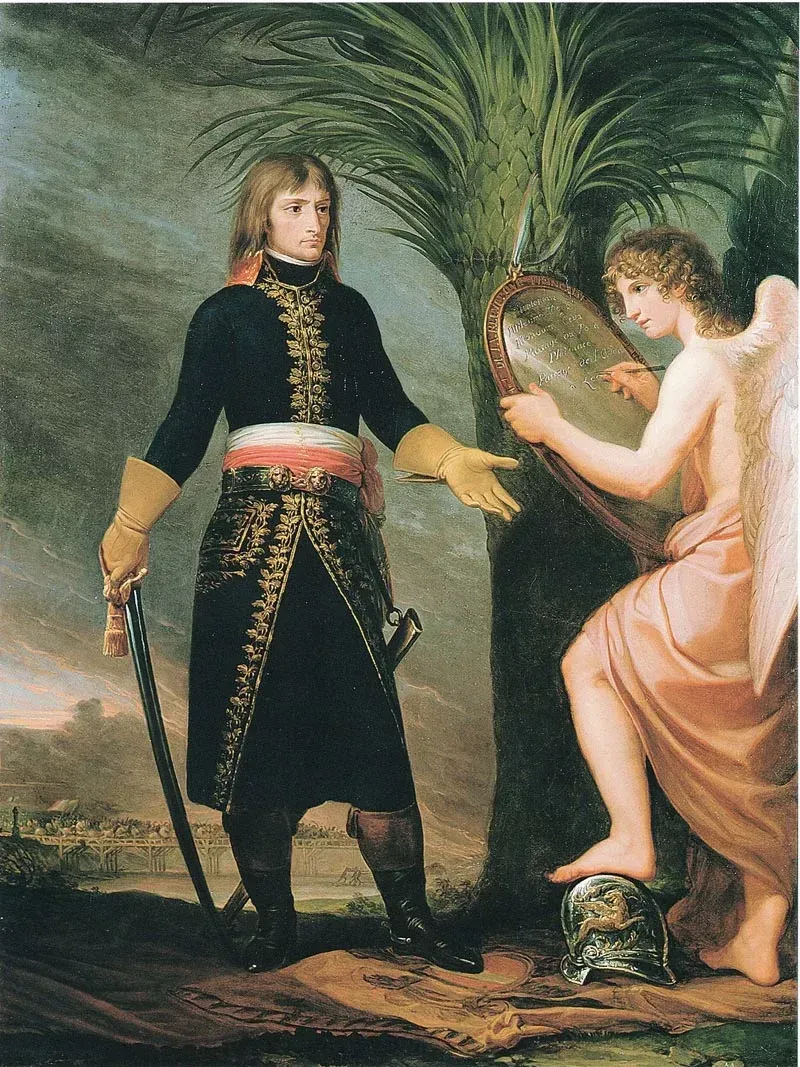Napoleon before he was Napoleon
The first thing to highlight is that 'Napoleon' did not yet exist. There was just General Bonaparte, an unusually successful and rather young star in the army of a republic that had only just come into existence.
Not that big a deal
General Bonaparte was the commander in chief of the French army in Italy called the 'Army of Italy'. This was an important position, with a dozen other generals subordinate to him. However, when you consider that the French Republic was fielding eleven armies in 1797 on various fronts, and employing hundreds of generals, you see that General Bonaparte, despite being popular because of his success, was not even the most important general in the army and Italy was in some ways considered a sideshow by the political masters in Paris. Or it was until Bonaparte made it count.
A bull in a china shop
When Napoleon started making unexpected things happen in Italy, the eyes of all Europe and beyond were drawn to his exploits. He has been compared to a bull of peculiar intelligence let loose in a whole warehouse of precious china. The reactions of that china- smirking Meissen countesses, voluptuous Capodimonte goddesses, and their languid swain, forms part of the background of Blood & Fireflies.
A social media star for the 1790s
General Bonaparte was still a very young man, when he started attracting the world's attention. He was admired almost universally, it was only later that he drew widespread opprobrium to himself. As a result his image, whether realistic or idealised was taken by everyone who met him, whether they used a pen or a brush. During the sojourn at Mombello several artists painted him- we meet one of them in the book. The resulting portraits were widely pirated and reworked, with the result that he appears with a bewildering variety of hairstyles and facial features.
But quite a big deal really
Hindsight and prejudice against or for his accomplishments colours our modern views of General Bonaparte. What can we say about how he was viewed by his contemporaries in this period before he made himself Napoleon: Emperor? He was viewed as a phenomenon and a military prodigy. Whether that was a good thing or not depended on the commentator's regard for the French Republic he served. He was certainly hugely self aggrandising and somehow managed to come out of the Italian campaign immensely rich. But that sort of behaviour was virtually compulsory for anyone in his position, and did not attract condemnation. Different times, different mores.





